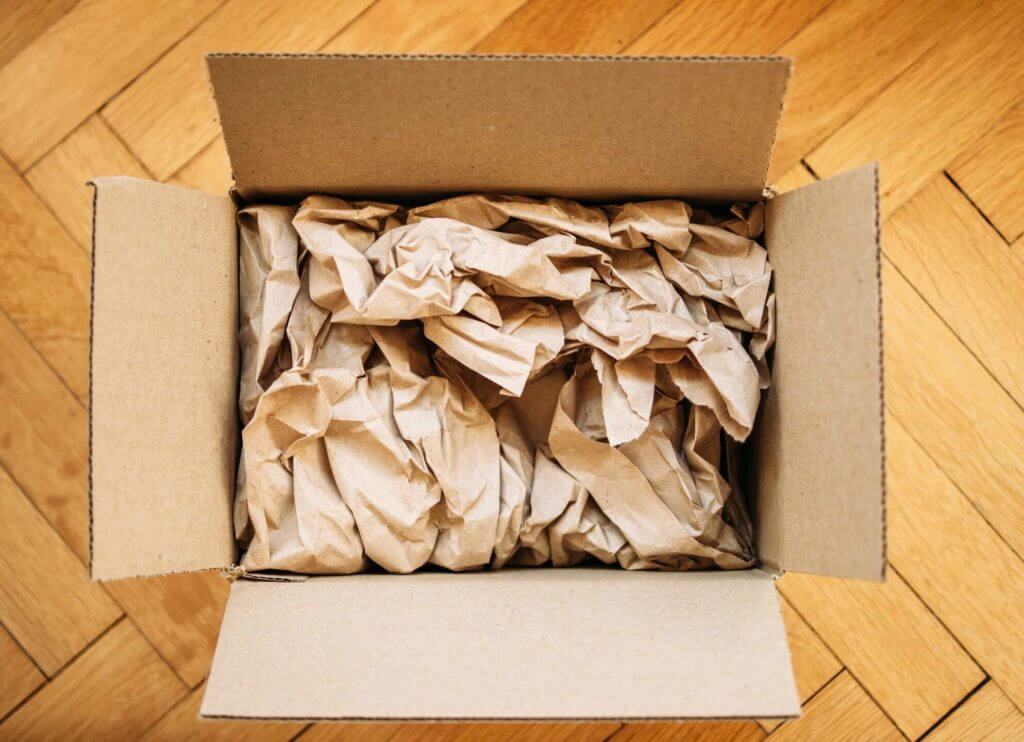How to Pack Pictures for Moving Long Distance – The Best Tips
Learning how to pack pictures for a move is straightforward, and we’ve got the best tips.


If you’re wondering how to pack pictures for moving, you’ve come to the right place. It’s all about wrapping up those moments with care and a bit of know-how. Now, let’s dive into the art of preventing damage to pictures during transit. With the right tips and tricks up your sleeve, you’ll turn what seems like a daunting task into a fun packing adventure, ensuring your snapshots and art pieces arrive just as vibrant and intact as they were on the walls.
Learning how to pack pictures for a move is straightforward, and we’ve got the best tips.
Start by decluttering your collection, choosing only the most meaningful pieces to bring along. For those treasured items, disassemble frames when possible, removing glass to wrap separately in bubble wrap or packing paper. Use corner protectors for added frame safety and consider specialty picture boxes that fit the frames snugly, reducing movement.
For artwork without glass, acid-free paper is a must to prevent any damage. If you’re on a budget, look for alternative packing materials like old newspapers or towels for an extra layer of protection. Remember, the key to preventing damage during transit is not just in the packing but also in how you organize and secure these items in the moving truck.
Packing pictures for moving is like preparing for a grand adventure where you decide which memories to carry forward. The key to a smooth transition is to sift through the collection, choosing the favorites that deserve a spot in your new chapter. This isn’t just about preserving memories. It’s about ensuring they relocate safely, surrounded by the care they deserve.
By trimming down the collection, you’re not only making the packing process more manageable but also paving the way for less relocation stress. Think of it as curating the personal gallery for the future—only the best pieces make the cut!
Deciding what to get rid of might feel like auditioning your memories for a part in your next life act.
For those snapshots and art pieces that don’t make the cut, why not gift friends and family members during the moving away party? It’s a win-win – the pictures get a second life, and you get to declutter with flair.
Imagine the look on Aunt Martha’s face when she unwraps that giant portrait of your family pet she’s always adored.
Or the chuckles when your best friend gets that quirky photo from college days.
This way, the cherished moments continue to bring joy, even if they’re not on your wall. And for everything else, there’s always the option of donating to local art schools or recycling. Remember, one person’s declutter is another’s treasure.

The best way to pack picture frames is all about planning and preparation, ensuring that each piece of your collection is ready for the journey ahead. Start by assessing and categorizing your snapshots and artwork, creating a clear inventory that will help you organize the relocation more efficiently.
This step is crucial not only for your peace of mind but also to prepare for white-glove movers who can handle the most valued items with the care they deserve. Before these treasures are tucked away into their protective cocoons, give each one a thorough cleaning.
This not only preserves the quality of the artwork but also ensures that they’re in pristine condition upon arrival. When it comes to frames, disassembling them and removing the glass when necessary minimizes the risk of damage.
Securing the right supplies is a pivotal first step in the relocation process, particularly when it comes to different packing materials for protective packing for frames. The materials you choose can make the difference between the artwork arriving in perfect condition or suffering unfortunate damage. Here’s a rundown of the best materials:
Each of these materials serves a unique purpose in the packing process. They offer layers of protection against shocks, scratches, and pressure points that could harm your framed artwork. The cheapest materials can be found on the Craigslist website.

Start with a layer of packing paper or bubble wrap to protect the glass and artwork, securing it with tape. Use corner protectors to safeguard the edges and corners, which are particularly vulnerable to knocks and bumps. When it comes to stacking and arranging pictures in moving boxes, be mindful to select the best-sized boxes that fit the frames snugly without too much extra space.
This prevents movement inside the box, which is a common cause of damage. For added protection, consider creating a cardboard sandwich for each piece – place a cardboard layer between each wrapped frame when stacking.
Large items such as oversized paintings or valuable artwork require special attention. The process of how to pack large pictures for moving to a new home begins with a careful preparation stage. Place each item on a stable, flat surface to start. Wrap the artwork in a generous layer of bubble wrap. Every corner and edge should adequately be shielded from potential harm.
Secure this protective layer with strong adhesive tape, creating a durable barrier against bumps and jostles. For pieces that are exceptionally grand in scale, it might be wise to consider using a custom crating service well in advance of the move date. To add an extra level of security, stuff any gaps with softly crumpled paper.
When packing and moving valuable art, especially canvas pieces, the choice of materials can greatly impact their preservation. Acid-free paper stands out as an essential ally in this process, offering protection from chemical degradation over time.
To relocate efficiently, each canvas should be carefully wrapped in acid-free paper. It acts as a barrier against environmental factors like moisture. This paper not only prevents direct contact with potentially harmful materials but also ensures that the artwork remains in pristine condition. After wrapping, secure the canvas with a layer of bubble wrap for additional cushioning and place it in a sturdy box.
Family photos hold irreplaceable memories, making their protection during a move paramount. Place each photo between sheets of acid-free paper. This crucial step shields them from scratches and the risks of fading over time, preserving their quality and sentimental value.
For added security, group these protected photos into bundles. Once wrapped, carefully place these bundles into small cardboard boxes. These boxes are ideal for maintaining the integrity of your photos, as they offer a sturdy container that can be easily labeled and organized.
If you’re wondering how to pack picture frames for moving, know that they need to be secured with corner protectors. These simple yet effective tools provide a safeguard against the dings, chips, and cracks that can occur during the hustle and bustle of relocation. The easiest way to package them begins with placing a corner protector on each corner of the frame.
These protectors act as a barrier, absorbing shocks and impacts that the frame might encounter. After applying the corner protectors, wrap the frame in bubble wrap or packing paper. For optimal security, use a cardboard box specifically designed for art and frames, reinforcing the box with tape and marking it as fragile.
Efficiently organizing and labeling packed items is crucial for a smooth relocation. By labeling boxes for easy identification and unpacking, you ensure a hassle-free process when it comes time to settle into the new space.
Keeping a moving inventory allows you to track all packed pictures, ensuring nothing gets misplaced. Organizing boxes by room or picture type makes it easier to unpack later. Adopting a system of labeling and organizing pictures for relocation minimizes confusion and maximizes efficiency during the move.

To find reputable movers, research and invest in companies that specialize in long-distance moving services, including storage solutions and packing services. Look for a white glove moving company like Long Distance Movers that offers an extra level of care and protection for your items. These companies are equipped to handle any precious cargo with the utmost precision. This is important for making sure the pictures arrive safely and securely at their new destination.
Our spacious climate-controlled units will protect your things until the drop-off. No need to worry about them because all items are labeled and secure, and each customer gets a dedicated unit mixup isn’t possible.
Learn more Learn moreMove your car across the country in an open or enclosed trailer – for an affordable fee. We offer car transport as a standalone service, but you can bundle it with your household move and get a hefty discount.
Learn more Learn moreUnpacking and arranging pictures after a move requires careful attention to ensure they are displayed safely and attractively in the new home.
Here are some tips for handling large paintings and frames:
Ensuring the safety of your framed art during a move is our top priority. With our comprehensive guide on labeling, organizing, and moving framed art safely, coupled with the expertise of our white glove moving services, the pictures are guaranteed to arrive intact. If you’re seeking a stress-free relocation experience for the valuable art, contact us, Long Distance Movers, right away. Your treasures will be in safe hands.
For securing framed artwork, bubble wrap and sturdy cardboard are optimal. Corner protectors are also essential to safeguard the edges and glass. Sealing the wrapped items in custom-sized boxes provides additional security during transit.
For oversized or uniquely contoured artworks, custom crates offer the best protection. Use foam padding inside the crate to prevent any shifting and absorb impacts. Wrap the artwork in a protective layer before placing it in the crate to avoid surface damage.
Enlisting experts for transporting valuable artwork is highly recommended. Professional white glove movers have the expertise and equipment to handle delicate items correctly. They offer specialized services, including climate-controlled environments, for added peace of mind.
Labeling containers with fragile items should be clear and visible. Indicate the contents as “Fragile: Artwork” and specify which side should face up. Including a brief description of the item inside can help with the organization upon arrival.
When transporting artworks, choose a climate-controlled environment to prevent damage from temperature fluctuations. Secure them in the vehicle to prevent movement that could cause harm. Lastly, consider a route that minimizes bumps and vibrations for the safest journey.